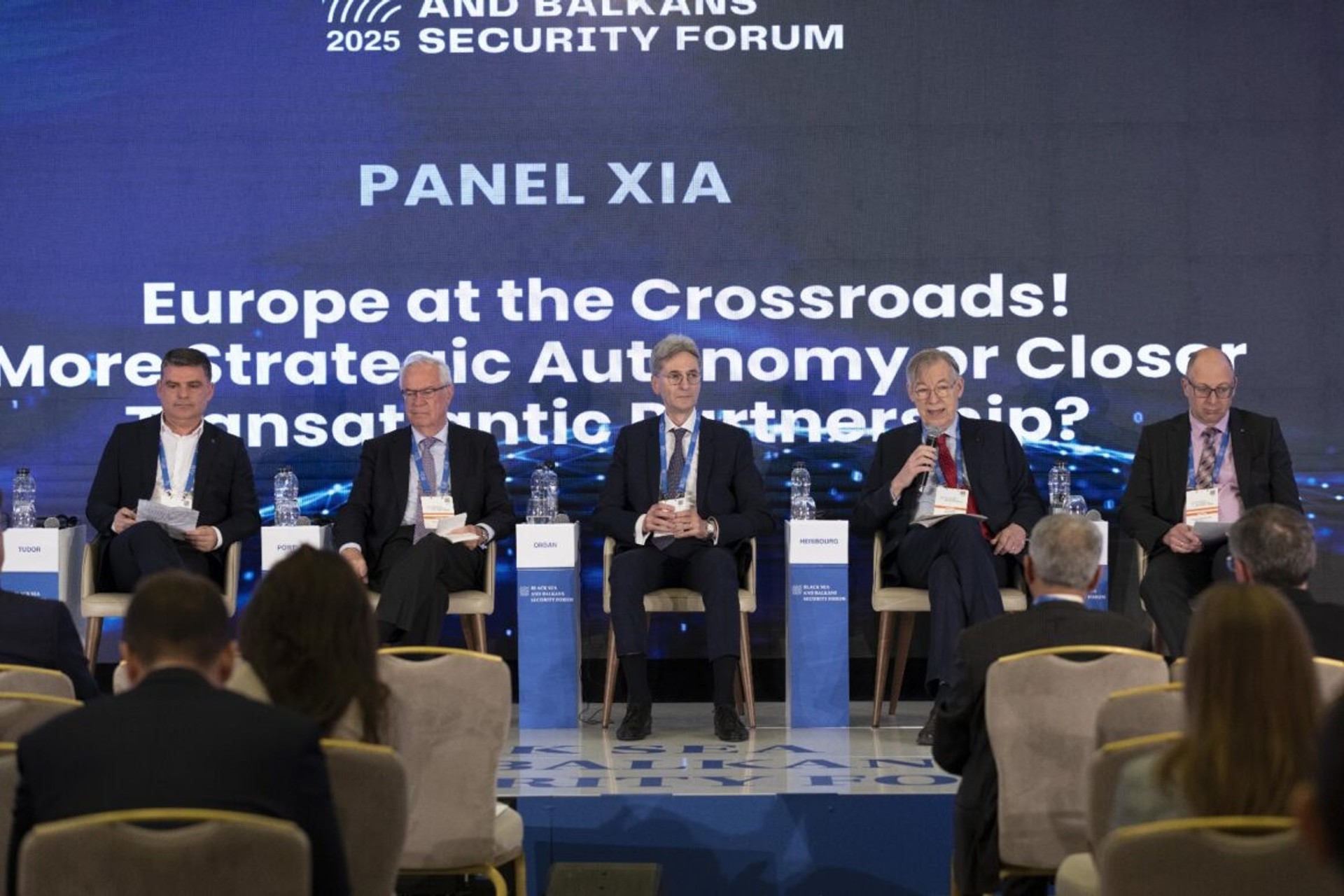
TRANSATLANTIC RELATIONS The question posed in the panel’s title comes at a difficult moment for Europe. On the one hand, we face an aggressive Russia that is waging a conquest war against Ukraine and conducting hostile hybrid activities against other European states. At the same time, a new dynamic is emerging in transatlantic relations, and we cannot ignore developments within Europe that threaten the unity of our alliances. We must resolve the question of Europe’s defense - which to date has been entrusted to NATO under firm U.S. commitments. We may expect those commitments to be reframed, and I am personally concerned by the prevailing uncertainty and the lack of a serious transatlantic dialogue. Hopefully, many of these issues will become clearer at the upcoming NATO summit in The Hague. I see several possible models for European defense, each of which raises additional questions: 1. Preserve NATO as Is. One option, the most preferred one from Europe, would be to keep NATO unchanged, with it remaining the cornerstone of Europe’s defense. Given the policy tilt of the Trump administration, this pure form of the alliance cannot be ruled out, but it seems increasingly unrealistic. 2. Build a Strong European Component within NATO. Under this model, the European countries would develop a robust defense pillar within NATO, using NATO’s existing structures. European states would shoulder a greater share of the burden, and U.S. commitments - both conventional and nuclear - would be recalibrated. Critical questions here include the scope of U.S. nuclear guarantees to Europe and the extent to which the U.S. will continue to provide key capabilities and staff in allied headquarters. 3. Develop an Autonomous EU Defense. This would entail forging an independent European defense capability within the EU framework - creating structures and mechanisms akin to those of NATO. It would require significant time, funding, and political will to build the necessary capabilities. Though difficult to realize in the near term, it is justified by deeper European integration and our evolving geostrategic environment. Important issues include how to coordinate with non-EU partners like the United Kingdom and Turkey, and whether all EU member states would participate equally in collective defense or if a subset would form a more tightly integrated core. 4. Form Coalitions of the Willing Outside NATO/EU. Various ad hoc coalitions formed by willing states outside the formal NATO or EU frameworks could provide tailored military guarantees, for example, to Ukraine. While this option cannot be dismissed outright, it raises the crucial question of security assurances for those countries left outside these coalitions. There is no clear answer to the question about the European Defense. All formats are possible but all of them rise additional questions. In my view, we urgently need a deep and comprehensive transatlantic dialogue and we must be prepared to invest far more in our collective defense.
